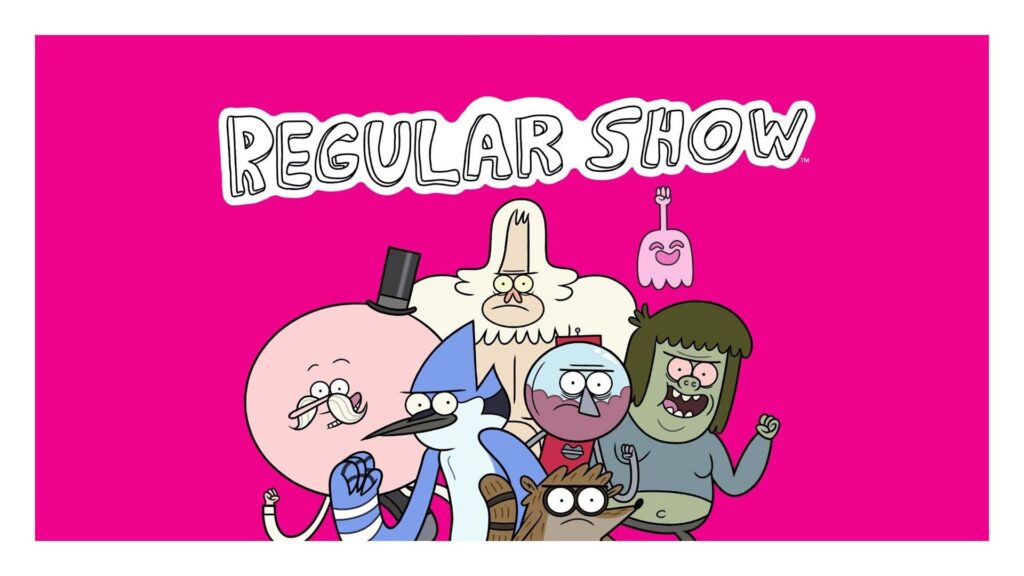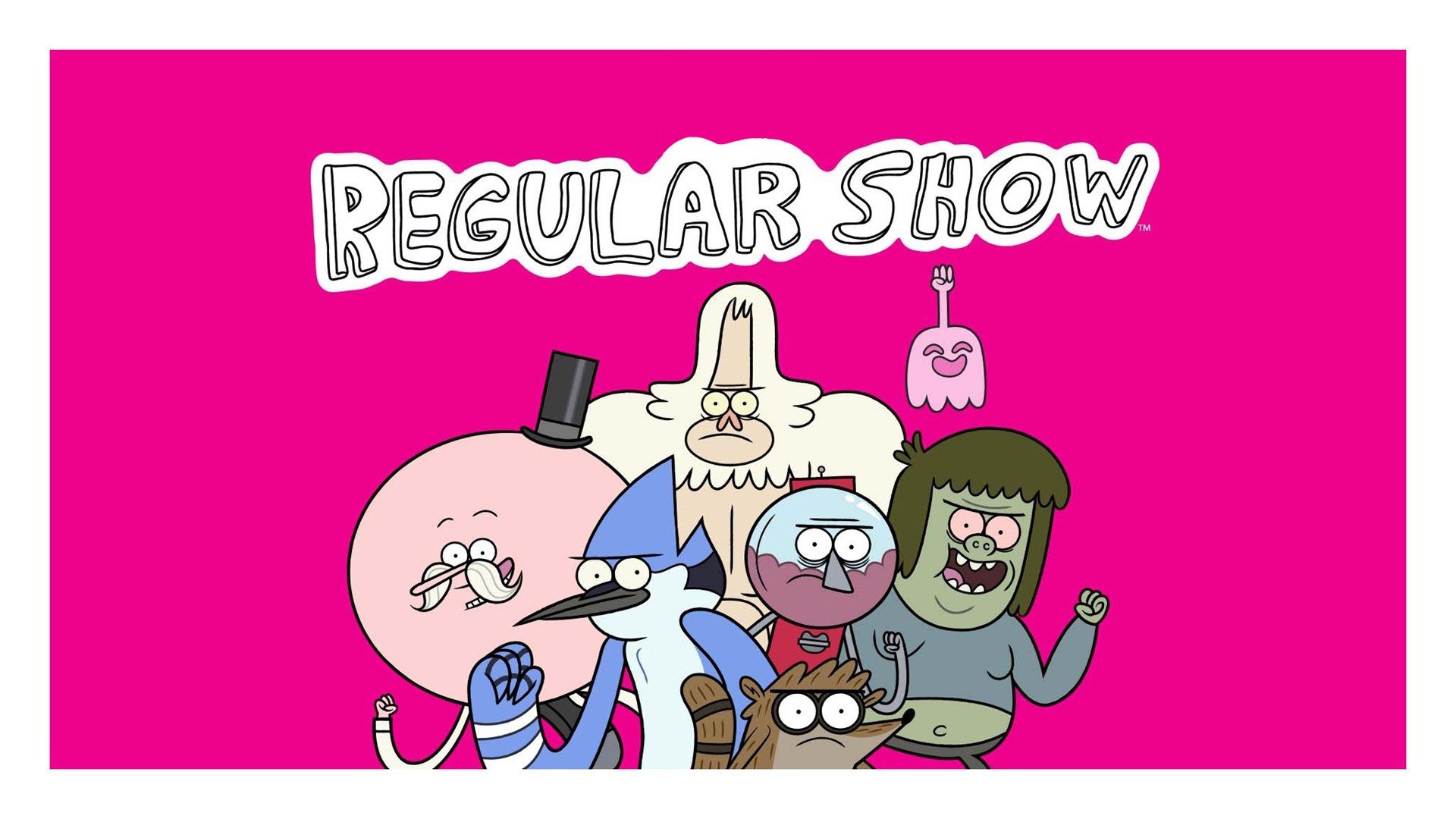
Decoding the Cold War Echoes in Regular Show: Unpacking “The Russian”
Regular Show, a seemingly simple animated series, often surprises viewers with its layered storytelling and unexpected cultural references. One episode that stands out for its subtle yet intriguing allusions is “The Russian.” While ostensibly about a high-stakes game of table tennis, “The Russian” subtly weaves in elements reminiscent of the Cold War era, adding depth and complexity to the narrative. This article delves into the various ways this episode reflects and reimagines Cold War themes within the context of a children’s cartoon.
The Premise: Ping Pong as Proxy War
At its core, “The Russian” revolves around Mordecai and Rigby’s intense rivalry against a formidable opponent known only as “The Russian.” The setup itself mirrors the proxy wars that characterized the Cold War. Instead of direct military conflict, the United States and the Soviet Union often engaged in indirect confrontations through smaller nations or other arenas, such as sports. In Regular Show, table tennis becomes the battleground, symbolizing this indirect conflict. The stakes are high, not just for personal pride, but also for the reputation of the park and, in a comedic sense, the nation.
Character Archetypes and Stereotypes
“The Russian” character embodies several Cold War stereotypes associated with Soviet athleticism and perceived nationalistic fervor. He is depicted as stoic, physically imposing, and intensely focused on winning. This portrayal, while exaggerated for comedic effect, draws upon the common Western perception of Soviet athletes as being products of a state-sponsored system designed to achieve global dominance in sports. The episode cleverly uses these stereotypes to create a compelling antagonist, enhancing the sense of competition and tension.
Visual and Auditory Cues
Throughout the episode, subtle visual and auditory cues reinforce the Cold War theme. The Russian’s training montage, for example, features imagery reminiscent of Soviet propaganda films, emphasizing strength, discipline, and unwavering dedication to the cause. The soundtrack incorporates elements of suspenseful spy music, further evoking the atmosphere of espionage and international intrigue that defined the Cold War era. These subtle details contribute to the episode’s overall thematic resonance.
The Stakes: Beyond a Simple Game
The escalating stakes in “The Russian” extend beyond the immediate competition. As Mordecai and Rigby become increasingly desperate to defeat their opponent, the episode explores themes of national pride, ideological conflict, and the perceived threat of foreign dominance. While presented humorously, these elements reflect the underlying anxieties that permeated Cold War society. The fear of falling behind, of losing ground to the opposing ideology, drives the characters’ actions and intensifies the narrative.
Deconstructing Stereotypes Through Humor
Despite employing Cold War stereotypes, Regular Show also subverts them through humor. The exaggerated nature of the characters and situations allows the episode to critique the absurdity of ideological conflict. By presenting these themes in a comedic context, the show invites viewers to question the validity of these stereotypes and to recognize the shared humanity of individuals regardless of their nationality or political affiliation.
The Resolution: A Lesson in Sportsmanship
Ultimately, “The Russian” concludes with a message of sportsmanship and mutual respect. Despite the intense rivalry and the high stakes, Mordecai and Rigby learn to appreciate the skill and dedication of their opponent. This resolution offers a subtle commentary on the Cold War, suggesting that even in the midst of ideological conflict, cooperation and understanding are possible. The episode implies that focusing solely on competition and nationalistic fervor can be detrimental, and that recognizing shared values and common goals is essential for fostering peaceful relations.
The Cultural Impact of Regular Show
Regular Show, created by J.G. Quintel, has had a significant impact on contemporary animation. Its blend of surreal humor, relatable characters, and unexpected cultural references has resonated with audiences of all ages. The show’s ability to incorporate complex themes, such as the Cold War, into a seemingly simple narrative demonstrates its depth and sophistication. “The Russian” episode, in particular, stands as a testament to the show’s creative ingenuity and its capacity to engage with important historical and cultural issues.
Why “The Russian” Resonates
The enduring appeal of “The Russian” lies in its ability to tap into collective memories and cultural associations related to the Cold War. Even for viewers who may not fully grasp the historical context, the episode’s themes of rivalry, competition, and national pride are universally relatable. The show’s clever use of stereotypes, combined with its humorous and heartwarming storytelling, makes “The Russian” a memorable and thought-provoking installment in the Regular Show canon.
Analyzing the Animation Style
The animation style of Regular Show also contributes to the episode’s overall impact. The show’s distinctive character designs, with their exaggerated features and expressive movements, enhance the comedic effect. The visual gags and surreal imagery further amplify the episode’s themes, creating a unique and engaging viewing experience. The animators’ attention to detail, particularly in the depiction of “The Russian’s” physical prowess and unwavering focus, adds depth and authenticity to the character.
The Use of Music in Setting the Tone
Music plays a crucial role in setting the tone and atmosphere of “The Russian.” The episode’s soundtrack incorporates elements of spy music, action movie scores, and traditional Russian folk music, creating a dynamic and engaging auditory experience. The music intensifies the sense of competition and suspense, while also adding a layer of cultural authenticity to the narrative. The skillful use of music enhances the episode’s overall impact and contributes to its thematic resonance.
Mordecai and Rigby’s Relationship Dynamics
The relationship between Mordecai and Rigby is central to the success of Regular Show. Their dynamic, characterized by a mix of friendship, rivalry, and mutual dependence, provides a relatable and engaging framework for the show’s various storylines. In “The Russian,” their competitive spirit is amplified as they strive to outdo each other in their quest to defeat their opponent. This dynamic adds another layer of complexity to the episode, highlighting the tensions and challenges that can arise within even the closest of relationships. [See also: Regular Show: Best Episodes Ranked]
The Role of the Supporting Characters
The supporting characters in Regular Show, such as Benson, Pops, and Skips, play important roles in shaping the narrative and providing comedic relief. In “The Russian,” their reactions to Mordecai and Rigby’s escalating rivalry add to the episode’s humor and absurdity. Their presence also serves to ground the story in a sense of normalcy, contrasting with the increasingly surreal and exaggerated events that unfold. The supporting characters’ interactions with Mordecai and Rigby contribute to the show’s overall charm and appeal. The character of “The Russian” himself stands out due to his silent, imposing nature, a stark contrast to the often chaotic supporting cast.
Analyzing the Dialogue and Humor
The dialogue and humor in Regular Show are characterized by their wit, absurdity, and pop culture references. “The Russian” is no exception, featuring a mix of clever one-liners, slapstick comedy, and surreal situations. The episode’s humor serves to lighten the mood and make the complex themes more accessible to a wider audience. The dialogue also provides insights into the characters’ personalities and motivations, adding depth and nuance to the narrative. The humor surrounding “The Russian” often stems from the juxtaposition of his stoic demeanor with the chaotic antics of Mordecai and Rigby.
The Episode’s Place in the Regular Show Universe
“The Russian” is just one example of Regular Show’s ability to blend humor, heart, and cultural commentary. The episode fits seamlessly into the show’s larger universe, while also standing out as a unique and memorable installment. Its themes of rivalry, competition, and cultural understanding resonate with the show’s overall message of friendship, acceptance, and the importance of finding joy in the everyday. The episode’s success lies in its ability to entertain and engage viewers while also prompting them to think critically about the world around them. [See also: The Evolution of Regular Show’s Animation Style]
Conclusion: A Masterful Blend of Humor and History
In conclusion, “The Russian” is a masterful example of Regular Show’s ability to blend humor, cultural references, and subtle social commentary. By reimagining Cold War themes within the context of a table tennis competition, the episode offers a fresh and engaging perspective on a complex historical period. The show’s clever use of stereotypes, combined with its heartwarming message of sportsmanship and mutual respect, makes “The Russian” a memorable and thought-provoking installment in the Regular Show canon. The episode, featuring “The Russian”, remains a testament to the show’s enduring appeal and its capacity to entertain and enlighten audiences of all ages.

